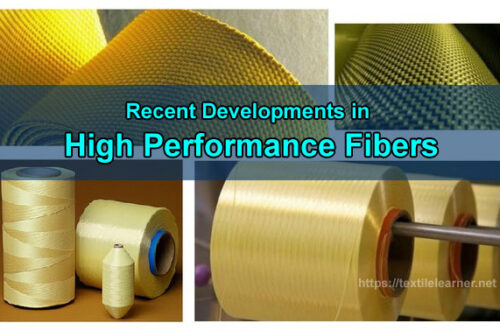- Understanding education verification and its importance in the professional environment.
- Exploring how technology has streamlined the verification process.
- Recognizing the benefits and ethical considerations for employers and job seekers.
Table of Contents:
- Introduction to Education Verification
- Why Accurate Education History Matters
- The Verification Process Explained
- Education Verification in the Hiring Process
- The Impact of Technology on Verification Procedures
- Best Practices for Employers
- Benefits for Job Seekers
- The Ethical Implications of Education Verification
Introduction to Education Verification
Education verification is pivotal in the modern hiring process as part of the foundation for a trusting and reliable workforce. This critical step ensures that the academic qualifications presented by job applicants are authentic and substantiated, assuring employers that the potential employees standing before them have been adequately vetted. In addition to preserving the integrity of the hiring process, education verification also acts as a deterrent against the embellishment of credentials, which can lead to unqualified individuals occupying positions that require specific expertise.
Furthermore, education verification helps employers mitigate the risk of hiring individuals who may misrepresent their qualifications, potentially posing liabilities to the organization. By verifying academic credentials, employers can make informed hiring decisions based on accurate information, thus enhancing the overall quality of their workforce. Additionally, education verification contributes to creating a fair and equitable hiring process by ensuring that all candidates are evaluated based on the same standards of qualification and merit.
Why Accurate Education History Matters
Clarity and honesty in one’s educational background are not just administrative details – they are essential elements that can determine the course of an individual’s career and a company’s trajectory. Employers safeguard their interests and establish a culture of honesty by ensuring that education records are accurately verified. In environments where expertise and knowledge are critical, accurate verifications confirm that all team members have the appropriate skills and training to perform their duties competently.
Inaccuracies or outright fabrications within academic claims can have serious repercussions. There may be significant financial consequences for businesses that, for instance, rely on the purported expertise of their staff when pitching products or services. The brand’s reputation can also suffer if these inaccuracies come to light, damaging trust with clients and within the industry.
The Verification Process Explained
The education verification process may initially seem straightforward – contacting educational institutions to confirm a candidate’s qualifications and attendance. However, discrepancies in record keeping, different privacy laws, and the vast number of educational institutions worldwide can pose challenges to timely and effective verification. Moreover, the rapid growth in online education and various unconventional schooling complicates this landscape even more.
Education Verification in the Hiring Process
Within a comprehensive hiring framework, education background checks feature prominently due to their ability to reveal much about an individual’s values and work ethic. An authenticated educational history speaks not only to a person’s qualifications but also to their attention to detail and respect for processes, which are invaluable in almost any workplace. Recruiters and HR professionals recognize that the benefits of conducting thorough education verification extend beyond avoiding fraudulent hires; it reinforces an organizational commitment to due diligence and integrity.
Research has shown that accurate background screening, including verifying educational credentials, is pivotal in recruitment and dramatically reduces the risk of undesirable hires.
The Impact of Technology on Verification Procedures
Incorporating technology into education verification processes has exponentially improved their efficiency and accuracy. Advanced software solutions enable faster, more secure, and often less expensive checks. For instance, databases with digitized credentials allow for immediate access and verification, minimizing HR departments’ time to invest in these processes. Digital credentials and badges are becoming more widely accepted, reflecting a shift towards a more streamlined, user-friendly approach to verifying educational backgrounds.
Looking toward the future, emerging technologies promise even more significant improvements. Blockchain technology, for example, holds the potential for providing a virtually tamper-proof record of educational achievements. Accessibility to such transparent and immutable records would significantly decrease the potential for credential fraud.
Best Practices for Employers
For employers, establishing a robust, consistent education verification policy is paramount. This not only entails defining clear procedures but also, when necessary, selecting and collaborating effectively with third-party verification services. Employers should seek partners that demonstrate compliance with relevant laws, exhibit thorough data protection practices, and have a track record of accurate, timely verification. By following these best practices, employers can confidently rely on the authenticity of the educational qualifications presented by their workforce.
Benefits for Job Seekers
On the flip side of the verification coin, job seekers stand to gain a competitive edge by providing credentials pre-verified by trusted institutions or services. In an environment where employers must sift through high volumes of applications, those candidates with verifiable qualifications may move more swiftly through the screening process. The assurance provided by verified education can be compelling for job seekers to be considered for their desired roles.
The Ethical Implications of Education Verification
Beyond its functional role in hiring, education verification carries considerable ethical responsibilities. Employers must balance the need for thorough vetting with the rights to privacy and fair treatment of candidates. Ensuring that the process is conducted with integrity and non-discriminatory manner is essential. Simultaneously, job applicants must recognize that upholding the integrity of their credentials is integral to their professional reputation and success. Misrepresentation or fraudulent activity can lead to severe career and legal repercussions, thus emphasizing the need for honesty and transparency for all involved.
The diligent practice of education verification in the hiring process embodies a broader commitment to excellence and truthfulness, which benefits the entire professional ecosystem.





